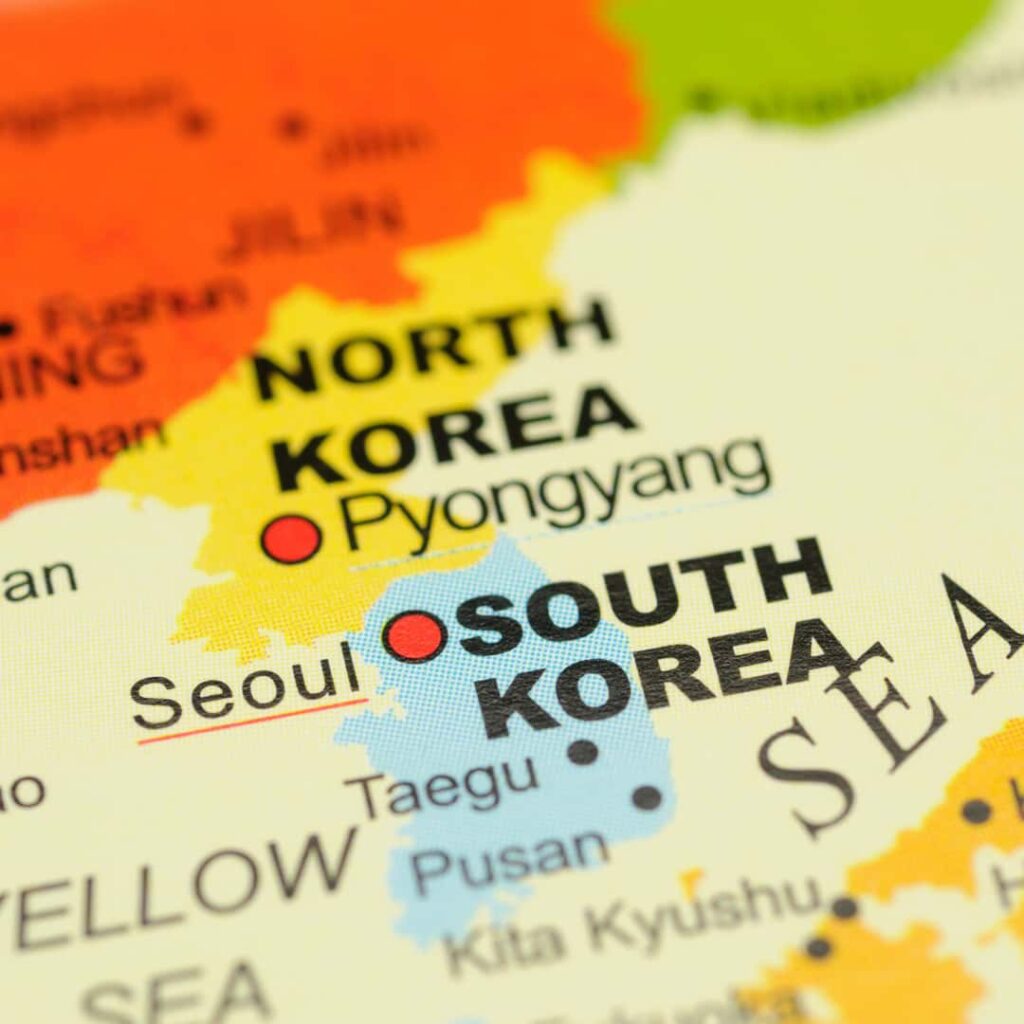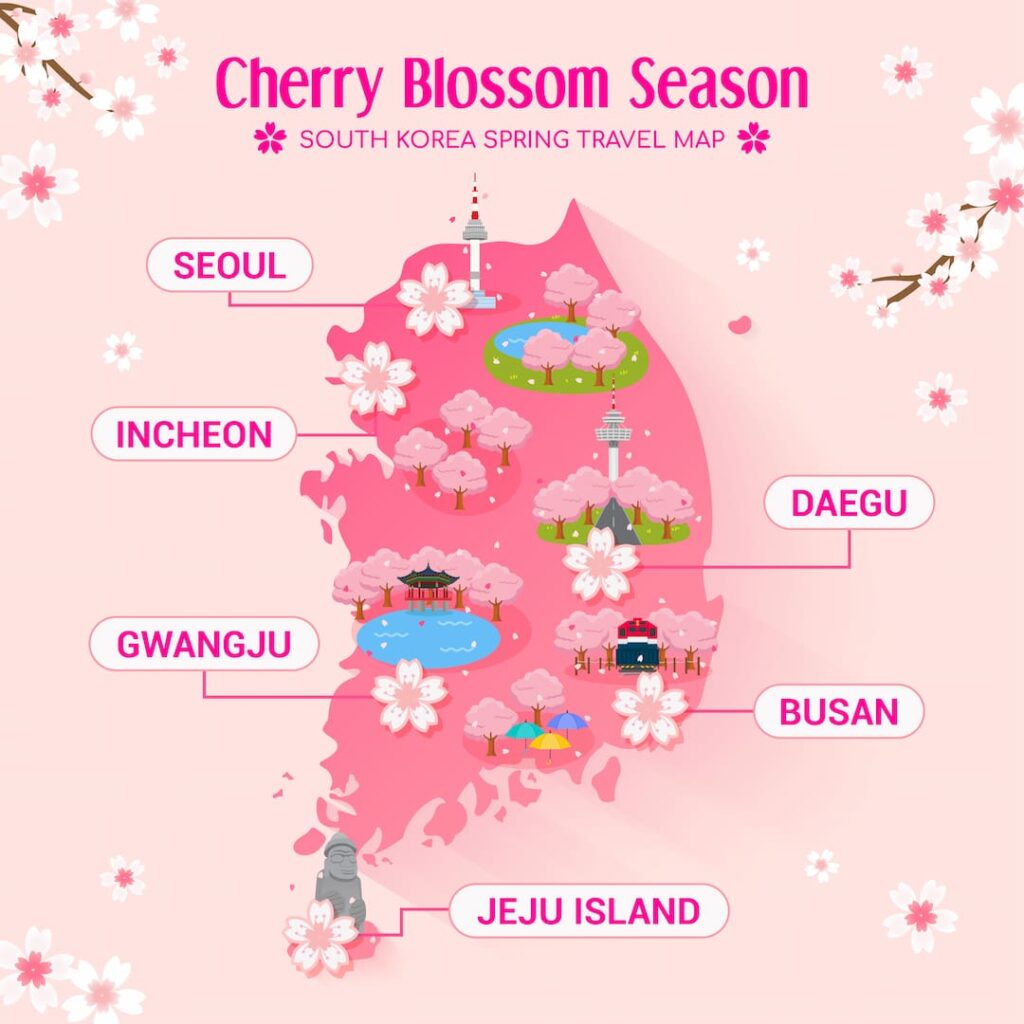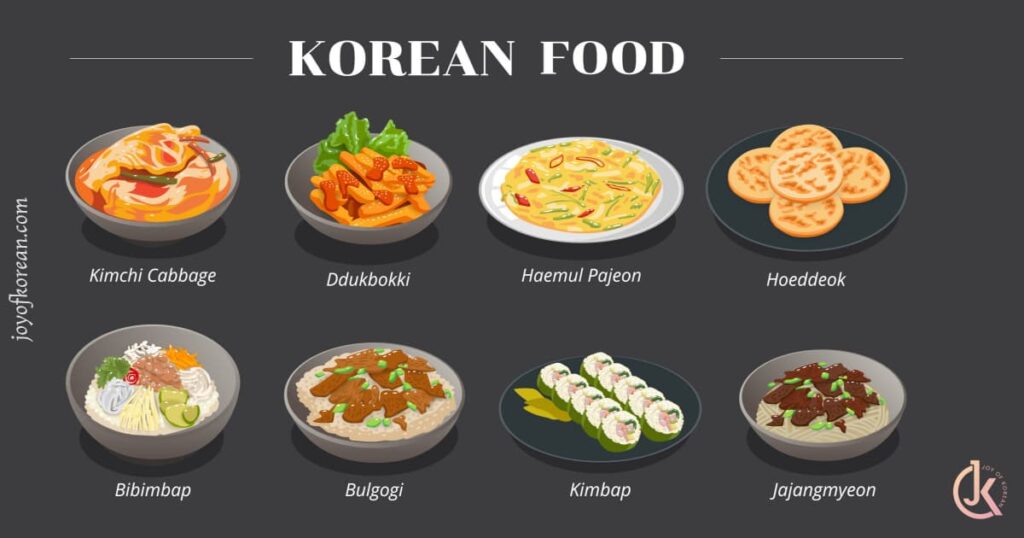Of so many outstanding language options, why should you even bother to learn Korean? You’re probably asking yourself this very question. Is it important and really worth it?
What is the first thing that comes to mind when you think of Korea?
BTS, Gangnam style, Kimchi, Parasite, Samsung, Tteokbokki?
You will be astonished to know there’s more to it than that.
There are several benefits to learning Korean. The advantages go far beyond just communicating daily and enjoying mesmerizing Hallyu as K-pop, K-movie, and K-drama.
Whether you plan to learn Korean soon, are already studying it, or can’t find any convincing logic, this article will help you.
Once in our lifetime, we have all stumbled upon the benevolent idea of learning a new language.
The purposes are often obvious. For example, maybe you want to understand the lyrics of a foreign song that you recently discovered. Or perhaps you desire to add the fact that you’re bilingual to your good old CV.
Usually, when people make up their minds about getting into a new language, they already know what language they will choose.
However, quite a few people have the right motivation but can’t set their hearts on a particular language. If you’re one of those, I know something that might pique your interest. It’s called “Korean.”
TABLE OF CONTENTS
- 14 Major Benefits of Learning Korean
- 1. 80 Million People To Talk To, possibly more
- 2. South Korea is pretty big in global affairs
- 3. Korean offers excellent career opportunities
- 4. You can potentially work in Korean companies
- 5. Korean language sounds incredibly beautiful
- 6. Korean is a logical language
- 7. It can help you learn Japanese and Chinese
- 8. K-entertainment is spreading like wildfire
- 9. Konglish can give you an advantage
- 10. Traveling to Korea
- 11. It can boost your IQ and improve memory
- 12. Study in South Korea
- 13. Korean culture is unique
- 14. For the love of Korean Foods
- Conclusion — Should You Learn Korean?
14 Major Benefits of Learning Korean
Motivation is the vital key to successfully gaining any language. And that implies finding your “Why.”
Here are 14 impressive reasons why the Korean language could significantly impact your academic, personal, and professional life. So let’s get the ball rolling!

1. 80 Million People To Talk To, possibly more
According to Ethnologue 2020, approximately 80 million people speak Korean as their first language, making it the 22nd most-spoken native tongue.
The number includes 48 million in South Korea and 24 million in North Korea. In addition, as per South Korea’s Ministry of Foreign Affairs, there is also a substantial Korean diaspora, around 8.3 million scattered across China, the USA, Japan, and other parts of the globe.
Now I understand the statistics may not be mind-blowing, considering some 20 other languages have more native speakers than Korean.
We look at their growing economy, cultural spread, the number of Korean learners worldwide, and how technologically advanced South Koreans are. Then we know the far-reaching occasions to communicate with them.
2. South Korea is pretty big in global affairs
The language’s popularity and its origin country’s success on the international stage go hand in hand. That’s why languages like Japanese and German are so prevalent globally despite not being extensively spoken. Korean is no exception!
The economy of South Korea is booming at a steady pace. As of 2024, the country is among the world’s top 15 economies and the sixth-largest exporter.
With the thriving economy and the strong bilateral relations with several major economies like China, the United States, Japan, India, and South-East countries such as Vietnam and Singapore, it has made a name worldwide.
The fact that North Korea always winds up in conflict with many other nations has made South Korea an essential ally to many powerful countries.
Today, their international ties, import-export, and investments stretch to almost all the big countries.

Approximately six million Korean speakers live in the USA, China, and Japan. And these three are some of the biggest business partners of South Korea. So, learning Korean might come in handy if you’re trying to up your game in these territories.
3. Korean offers excellent career opportunities
In the mid-twentieth century, South Korea was one of the poorest countries in the world. Today in 2024, it is the 12th most prosperous economy worldwide, with a nominal GDP of around 1.65 Trillion US dollars.
These statistics point to one thing: the South Korean economy grows undeviatingly. This is because economic strength and excellent trade ties equal business and employment possibilities.
Korean products are synonymous and recognized for their ultimate contribution to high-quality consumer goods appreciated by millions worldwide.
Many career options exist in industries as diverse as steel, textiles, car manufacturing, electronics, technology, entertainment, hospitality, R&D, tourism, semiconductors, finance, shipbuilding, and government.
And all these are filled with surpassing career opportunities.
Knowing how to speak Korean always looks great on your resume if you intend to work in those corporations that operate in these sectors.
4. You can potentially work in Korean companies
Who hasn’t heard about gigantic companies like Samsung, LG, and Hyundai?
Some Korean multinational corporations with subsidiaries have a significant presence in many nations all around the globe. Moreover, most of them are constantly expanding, such as Hyundai Motor, Hanwha, Samsung Electronics, POSCO, Kia, Lotte, and LG Electronics.
Your job prospect will improve and open the doors of these MNCs in Korea and other parts of the world. Thus, learning Korean can give you a slight advantage if you consider joining a Korean company.
It may not be the crucial factor that will convince employers to hire you. This is because academic qualification, experience, and personality make much more difference than knowing Korean.
They prefer to select someone with more expertise and skills required for the job. However, knowing advanced Korean will set you apart from the crowd if all things are equal. Thus, it can be a determining factor in hiring someone for Korean companies.
If you’re interested in working in one of these corporations, why not learn Korean?
5. Korean language sounds incredibly beautiful
Many learn a new language because they love the sound of it. In college, the French accent fascinated me to dive deep into French. Today, I feel the same for Korean. It sounds harmonious and sophisticated.
I believe all languages are beautiful in some way. However, there is a broad consensus between Italian and French. Besides these two, Korean, in my opinion, is aesthetically pleasing to the ear.

The jury is still out on why any language sound more poetic, soothing, and melodic than another. In a few words, it’s all still subjective.
I feel Korean has an artistic way of expressing things. The change in pronunciation as per flow, natural vowels, more resounding, and limited interruption of harsher consonants makes a poetic tongue overall.
A similar ending sound makes more rhyming. A few others, like Bengali and Spanish, Korean also has a distinct articulation and intonation. That could justify why K-songs sound so musical and worth learning Korean.
6. Korean is a logical language
The Korean language uses a system called ‘Hangul’ (한국어) in South Korea. In North Korea, we call the same ‘Chosŏngŭl.’ (조선말).
Korean is very phonetic after creating their own Hangul from Hanja (Chinese characters) by King Sejong the Great in 1443. This Hangul is regarded as one of the most logical and scientific language systems worldwide.
You will learn the alphabet as quickly as one day, and this will teach you the basics of Korean so you can read most words. You can then sound out words, phrases, and sentences right away.
The Korean alphabet is pretty simple and reasonably easy to read. On the contrary, grammatical particles, conjugations, and honorifics are hard.
7. It can help you learn Japanese and Chinese
Linguistically, Korean, Chinese, and Japanese belong to distinct language families. Still, there are some connections between these three East Asia languages because of geographical, social, linguistic, and historical proximity over millennia.
It is easier for Korean speakers to learn Japanese or Chinese than those from far regions.
Once you achieve decent fluency in Korean, like level IV or V of the TOPIK test, you can have an edge in studying Japanese.
Both share plenty of vocabulary, sentence structure rules, SOV order, honorific, grammar, and the use of markers. And this is a meaningful bonus.
The written characters differ since Koreans use Hangul, whereas the Japanese use Kanji (Chinese Hanja). The speech sounds, tones, native words, and phonology of these two languages are also quite distinct.
Korean sounds more like Chinese, but there are many differences since Mandarin is a tonal language.
Based on my interaction with experts of these languages, I concluded roughly 20% correlation between Mandarin, Japanese, and Korean.
This is not much, but at least it is good enough compared to nothing in common.
8. K-entertainment is spreading like wildfire
Let’s face it! We all realize someone riding the “K-drama or the K-pop wave.” Because much like the Korean economy, Korean Pop music is also on the rise.

K-pop is everywhere, with many Korean bands collaborating with many big Hollywood stars. However, it’s not limited to just Kpop.
Whether it’s four times Oscar award-winning movie “Parasite” or the heart-wrenching Netflix show about zombies, “The Kingdom,” the Korean film industry has come a long way.
Many Kdrama TV shows are doing well because they have massive global viewers. Fans won’t understand anything without subtitles.
Korean pop stars are rocking the charts worldwide with their music to the newly found Anime hot topics in the anime community.
The Korean entertainment industry is reaching heights and breaking barriers worldwide. So, if you want to enjoy songs, romantic drama, or cinema and show their full extent, learning Korean is a no-brainer!
9. Konglish can give you an advantage
Many Koreans are trying to learn English because of globalization and anglophone cultural influence. However, most new-generation people can speak at least the introductory English needed for communication.
Even though the Korean and English visuals difference is vast, Korean has many English words incorporated. Therefore, the mixture of both languages is called “Konglish.”
A typical example is the Korean term 리모콘 (“rimokeon”) for the English “remote control.” Another example is 노트 (“noteu”), a short English form for the notebook.
Konglish is pretty easy, making it perfect for beginners. But remember, the pronunciation can differ a lot. Many sound identical, but some are slightly different from standard English.
They appreciate other cultures and attempt to learn other languages like English. You can return the same courtesy, which is a perfect reason to learn Korean. Also, Konglish can be a gateway for people trying to master Korean.
10. Traveling to Korea
South Korea has a rich history, lively neighborhoods, beautiful locations, and many traditions and customs that one can explore. Not just that, South Korea is one of the ‘friendliest and ‘most welcoming’ countries.
Like Japanese society, South Korea is also one of the most respectful cultures globally. The beauty of Korea and its richness are something you want to experience in this lifetime.

From picturesque nature, charming villages, old-age temples, and mystical parks to modern Seoul, sunny beaches in Busan, the incredible mountains of Jeju-do, and the historical museum of Gyeongbokgung palace, the tourist destinations lists are pretty much endless!
The Korean language can make your travels throughout Korea easy. That’s why you must learn Korean if you plan to travel to South Korea.
11. It can boost your IQ and improve memory
Bilingualism has many benefits, and one of the biggest ones is intellectual growth. In addition, many researchers have found that learning a second language or being bilingual sharpens your cognitive skills.
This also improves your memory, helps you multitask, and makes you solve problems faster and more logically.
Generally, a bilingual person possesses more gray matter in their brain than a monolingual person. It is responsible for storing memory and processing languages.
That is why if you learn Korean won’t just give you access to 80 million more people; but will also help you keep your brain active, better, and healthy.
12. Study in South Korea
Korean opens doors to multiple universities in South Korea, which are particularly well renowned for a wide range of subjects and fields – and at affordable prices too!
From the quality of life to studying in one of the high-quality institutions, many justifications choose South Korea as your education abroad destination.
In 2017, over 120,000 international students were studying in South Korea. With a record growth of 19%, this number grew to almost 140,000 in 2018 and 160,000 in 2019. These numbers show that people travel more and more to Korea to study.
Besides, communication is the biggest problem a person faces in a different country. So, if you plan to pursue undergraduate, master’s, or even Ph.D. programs in Korea, learning their language would make your stay more pleasant!
The good news is that most South Korean universities provide lessons in Korean, along with their chosen courses. So even if you know some elementary level, you can continue to reach intermediate to near-native when you live there.
Alternatively, you can also take the accepted Korean language ability test like TOPIK (Test of Proficiency in Korean).
13. Korean culture is unique
Language and culture are interlinked. One cannot learn a new language without understanding its cultural aspects.
South Korea is one of the most modern countries. Yet, at the same time, it is deeply traditional, where old folklore, lifestyle, habits, customs, and multi-layered have evolved over several centuries.
You can explore unique traditions with a colorful history.
Studying Korean would be a great way to show your admiration towards them for those who put respect higher than anything. Moreover, when you try to acquire their language, it shows them you value their culture.
Speaking at least basic Korean will enable you to access the authentic culture more than those out of reach because they don’t know. You will be at an advantage when you meet any Korean native. This is another reason to learn Korean.
14. For the love of Korean Foods
Who doesn’t enjoy mouth-watering food?

The increasing interest in scrumptious Korean cuisine has led to hundreds of restaurants offering Korean dishes. They are fantastic for health too.
Kimchi, Bibimbap, Bulgogi, Jjigae, Jajangmyeon, and Samgyeopsal are nutritious, spicy, hearty, and delicious reasons to learn Korean.
So if you are a staunch fan of tasty foods, it is undoubtedly beneficial to understand the original language to enjoy it fully.
Conclusion — Should You Learn Korean?
As you can see, there are several reasons why you should invest your time in learning Korean.
Maybe this is as small as “love for K-pop band group BTS or BlackPink songs,” or it is as big as “moving to Korea for a job.”
Of course, the Korean language isn’t easy, but there are ways to simplify it. And in all that, you will surely love it!
Whatever your reason to learn Korean, this language may be. You can rest assured that the language will be worthwhile your effort and a unique accomplishment that will open many doors of exciting moments.
Do you have questions for me or want to share something? Let me know in the comment section below.












I am working as a SAP ABAP Programmer in Mumbai. I am planning to learn a language. I have narrowed down two of them: 1. Japanese and 2. Korean. Please guide me with the same. Which language to choose?
The selection of a language is pretty subjective, and this is something only you can determine.
Hello sir, I am Riya from new Delhi. I want to learn korean language can you recommmed any institute in Delhi?
Korean cultural center at Lajpat Nagar, Arirang and IICKL (Dwarka), and DU’s Daulat Ram and Ramjas College are good options.
Thank you for your assistance.
I got admitted for a master’s in business analytics in the US and on the other side, I have applied for the Korean language program in Korea. Which is better to choose, MS or Language program?
Career-wise, a master’s in business analytics offers more opportunities than the Korean language. Plus, the US has more jobs and no language barrier either. But all depends on your goal, interest and budget. This is something only you can decide. You can do the research on the pros and cons.
Hi, I am favor from Nigeria and I love Korea. I am learning Korean language and I can say I may know some basic of the language. I would want to study medicine in Korea, is it a good choice?? Or not
Yes, sure!
Hello sir, I am Dihara from Sri lank. I want to learn Korean language can i join in Korean campus?
You can if you can afford the expenses.
Aanyeonghaseyo. I’m Prossy from Uganda. I’m 100% eager to study in Korea and study it’s language and culture. Kamsahamnida.